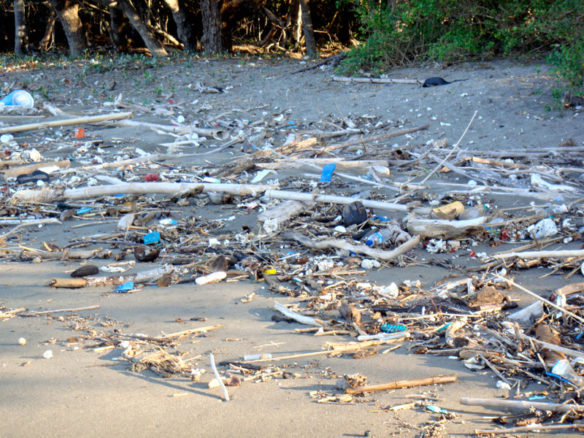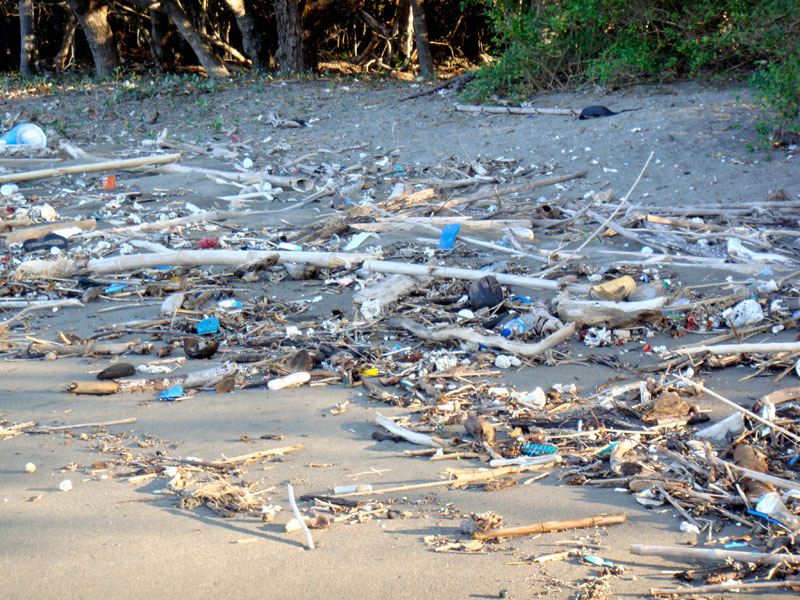
Although uninhabited by people, and remote, Komodo island’s beaches are covered with plastic. Indonesian National Park of the Komodo. Captions and Photo: © SAF — Coastal Care
Excerpts;
Humankind is revealed as simultaneously insignificant and utterly dominant in the grand scheme of life on Earth by a groundbreaking new assessment of all life on the planet…
Read Full Article; Guardian UK (05-21-2018)
Original Study: “The biomass distribution on Earth,” Pnas (05-21-2018)
Scale of human impact on planet has changed course of Earth’s history, scientists suggest; Science Daily (10-02-2017)
The significant scale of human impact on our planet has changed the course of Earth history, an international team of scientists led by the University of Leicester has suggested…
The Anthropocene epoch: scientists declare dawn of human-influenced age; Guardian UK (08-29-2016)
Experts say human impact on Earth so profound that Holocene must give way to epoch defined by the radioactive elements dispersed across the planet by nuclear bomb tests, although an array of other signals, including plastic pollution, soot from power stations, concrete were now under consideration…
Anthropocene Period Would Recognize Humanity’s Impact on Earth, Science Daily (07-11-2013)
The Anthropocene is the name of a proposed new geological time period that may soon enter the official Geologic Time Scale. The Anthropocene is defined by the human influence on Earth, where we have become a geological force shaping the global landscape and evolution of our planet…
Humans causing climate to change 170 times faster than natural forces, Guardian UK (02-12-2017)
For the first time, researchers have developed a mathematical equation to describe the impact of human activity on the earth, finding people are causing the climate to change 170 times faster than natural forces…









